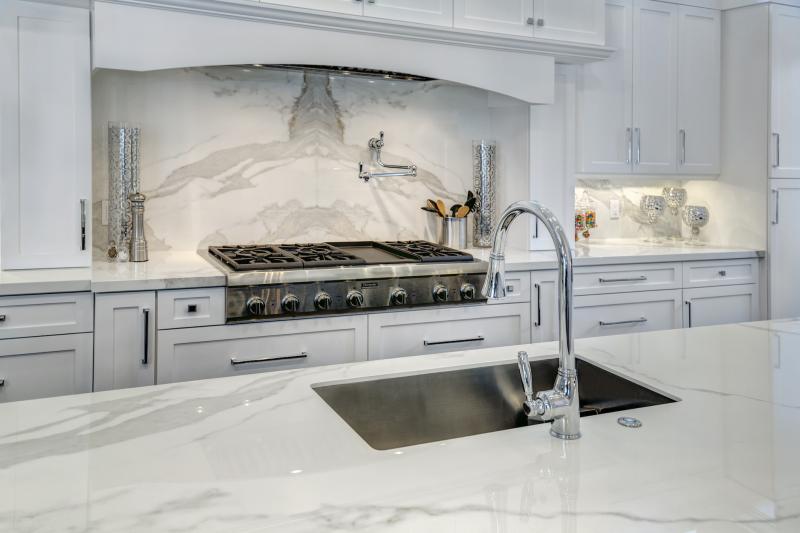When it comes to remodeling or designing a new kitchen, one of the most important decisions that you will need to make is selecting the right material for your worktops. While you have a variety of options to choose from ranging from granite to quartz, one option that stands out for its beauty, durability, and versatility is Neolith. In this article, we will explore what Neolith is, its benefits, and why it might be the perfect choice for your kitchen project.

- What is Neolith?
Neolith is a type of surface material that is made from natural raw materials, including clays, feldspar, silica, and mineral oxides. These materials are combined and compressed at a high pressure and temperature to create a strong, dense, and resistant surface that can be used for everything from countertops and worktops to flooring and wall cladding. Neolith worktops come in a wide range of colors, patterns, and finishes, which makes them an ideal choice for any kitchen project.
- Benefits of Neolith Worktops
One of the main advantages of NEOLITH WORKTOPS is their exceptional durability. Neolith surfaces are extremely resistant to scratches, heat, and UV rays, which means that they can withstand the daily wear and tear of a busy kitchen without any problem. Moreover, Neolith is non-porous, which makes it impervious to water and stains and very easy to clean and maintain. Finally, Neolith is a sustainable and environmentally friendly option, as it is made from natural raw materials and is fully recyclable.
- Neolith Worktops vs. Other Materials
While Neolith worktops are relatively new to the market, they have already established themselves as a high-quality and cost-effective alternative to other materials such as granite, quartz, and porcelain. Neolith is much more resistant to scratching, chipping, and cracking than granite and quartz, and it does not require periodic sealing like these materials. Moreover, Neolith is much lighter and stronger than porcelain, which makes it easier to handle and less prone to breakage.
- Neolith Worktop Installation and Maintenance
Installing Neolith worktops requires a high level of expertise and precision, as the material is extremely hard and difficult to cut and shape. That's why it's important to work with experienced and qualified installers who have the right tools and skills to get the job done properly. Once installed, Neolith worktops require minimal maintenance. They should be cleaned regularly with a damp cloth and a mild detergent, and any spills should be wiped up immediately to prevent staining.
- Choosing the Right Neolith Worktop for Your Kitchen
With so many colors, patterns, and finishes to choose from, selecting the right Neolith worktop for your kitchen can be a bit overwhelming. That's why it's always a good idea to work with a professional designer who can guide you through the selection process and help you choose a worktop that fits your needs, style, and budget. When choosing a Neolith worktop, you should consider factors such as the color scheme of your kitchen, the level of durability and resistance you need, and the type of edge profile you prefer.
Conclusion:
Neolith worktops are a fantastic option for those looking for a high-quality, durable, and stylish material for their kitchen worktops. Whether you're looking for a classic and timeless look or something more modern and eye-catching, Neolith has a range of options that are sure to meet your needs and budget. While the initial cost of Neolith worktops might be higher than some other options, their longevity, durability, and low maintenance requirements make them a wise investment in the long run. So if you're renovating or designing a new kitchen and want to enhance its beauty, functionality, and value, consider Neolith worktops today.
 icons at the top right corner of the subsection.
icons at the top right corner of the subsection.